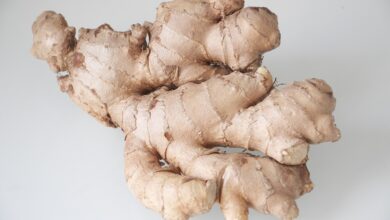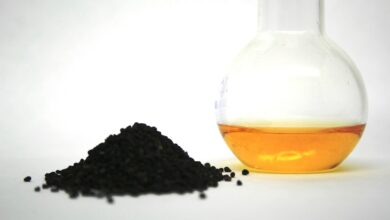
White vinegar, a staple in many households, is not only a versatile ingredient in cooking and cleaning but also offers numerous health benefits. Made through the fermentation of distilled grain alcohol, white vinegar contains acetic acid, water, and trace amounts of other compounds that contribute to its health-promoting properties. This comprehensive guide explores the various ways white vinegar can benefit the body, detailing its physical, digestive, and antimicrobial advantages.
Physical Health Benefits
1. Weight Management
White vinegar can be a helpful addition to a weight management regimen. The acetic acid in vinegar has been shown to increase feelings of fullness, helping to reduce overall calorie intake. Studies suggest that consuming vinegar with meals can lead to a decrease in post-meal blood sugar levels and insulin responses, which can prevent overeating and support weight loss.
How to Use:
- Add a tablespoon of white vinegar to a glass of water and drink it before meals.
- Use white vinegar as a salad dressing or marinade to enhance flavor and promote satiety.
2. Blood Sugar Control
For individuals with diabetes or insulin resistance, white vinegar can aid in blood sugar control. Acetic acid slows the digestion of starches and the breakdown of carbohydrates into sugar, leading to more stable blood sugar levels. This can prevent spikes and crashes in blood glucose, improving overall glycemic control.
How to Use:
- Incorporate white vinegar into your diet by using it in dressings, marinades, and sauces.
- Drink a diluted mixture of white vinegar and water before meals.
3. Skin Health
White vinegar possesses antibacterial and antifungal properties, making it a beneficial addition to skincare routines. It can help in treating acne, soothing sunburns, and balancing the skin’s pH levels. Additionally, the acetic acid in white vinegar acts as a mild exfoliant, removing dead skin cells and promoting a clearer complexion.
How to Use:
- For acne treatment: Mix equal parts of white vinegar and water, apply to the affected area with a cotton ball, and rinse after 10-15 minutes.
- For sunburn relief: Add a cup of white vinegar to a cool bath and soak for 15-20 minutes.
- As a toner: Dilute white vinegar with water and apply it to the skin using a cotton pad.
4. Hair Care
White vinegar can improve hair health by removing product buildup, balancing scalp pH, and adding shine to hair. It can also help in treating dandruff due to its antifungal properties.
How to Use:
- As a rinse: Mix one part white vinegar with two parts water and pour over hair after shampooing. Leave for a few minutes before rinsing thoroughly.
- For dandruff: Apply a diluted solution of white vinegar to the scalp, leave for 15-20 minutes, and rinse.
Digestive Health Benefits
1. Enhances Digestion
White vinegar can stimulate the production of digestive enzymes, aiding in the breakdown of food and improving nutrient absorption. It also helps maintain an optimal pH level in the stomach, promoting efficient digestion.
How to Use:
- Drink a mixture of one tablespoon of white vinegar in a glass of water before meals to stimulate digestion.
- Use white vinegar in cooking to enhance the flavor and digestibility of food.
2. Relieves Heartburn
Contrary to what one might expect, white vinegar can help alleviate heartburn by balancing stomach acidity. This is particularly beneficial for individuals with low stomach acid, which can cause symptoms similar to high acidity.
How to Use:
- Drink a diluted solution of white vinegar (one tablespoon in a glass of water) to relieve heartburn symptoms.
Antimicrobial Benefits
1. Disinfectant Properties
White vinegar’s antimicrobial properties make it an effective natural disinfectant. It can kill harmful bacteria and pathogens on surfaces and in wounds, promoting hygiene and preventing infections.
How to Use:
- For cleaning: Use a mixture of equal parts white vinegar and water to clean surfaces and disinfect kitchen utensils.
- For wound care: Dilute white vinegar with water and apply it to minor cuts and abrasions to disinfect and promote healing.
2. Food Preservation
White vinegar’s acidity inhibits the growth of bacteria and molds, making it an excellent preservative for pickling vegetables and extending the shelf life of various foods.
How to Use:
- Use white vinegar in pickling recipes to preserve vegetables and enhance their flavor.
- Add white vinegar to sauces and marinades to prolong their freshness.
Practical Tips for Using White Vinegar
1. Dilution
Always dilute white vinegar before using it on the skin or ingesting it to prevent irritation or damage due to its high acidity.
2. Storage
Store white vinegar in a cool, dark place to maintain its potency and extend its shelf life.
3. Combination with Other Ingredients
White vinegar can be combined with other natural ingredients like honey, lemon juice, or herbs to enhance its health benefits and improve its taste and aroma.
4. Precautions
While white vinegar is generally safe for most people, it is important to consult with a healthcare professional before using it as a remedy, especially for those with underlying health conditions or those taking medications that could interact with vinegar.
White vinegar is a versatile and potent natural remedy with a wide range of health benefits. From aiding in weight management and blood sugar control to enhancing skin and hair health, white vinegar’s acetic acid and antimicrobial properties make it a valuable addition to any health regimen. By incorporating white vinegar into your daily routine, you can harness its benefits to improve your physical, digestive, and overall well-being. Always remember to use white vinegar safely and appropriately to maximize its positive effects on your body.




